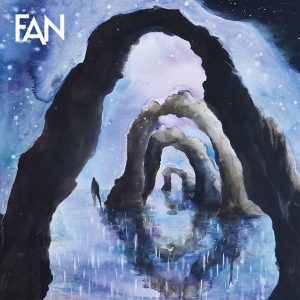Birth, death and a broken fan lay the groundwork for Meric Long’s solo debut

In the midst of a much-needed break from The Dodos following the passing of his father and the birth of his daughter, the indie rock band’s frontman, Meric Long, found himself searching for the means to subvert his approach to songwriting. This led to inspiration away from his guitar.
While having lunch with his family at a taqueria, Long went to the restroom and his gaze was drawn to a broken fan sputtering out of rhythm. Long, who was sputtering out of rhythm himself, did have a starting point. The Dodos’ frontman had inherited two synthesizers from his father and attempted to connect with the instruments as a means to reconcile the loss.
“When somebody passes away, especially your parents, there is this feeling or sense of obligation,” Long said. “I wasn’t going to just give this stuff away. These musical instruments were something he loved. And so I felt an obligation to at least learn and take them up.”
While the death was hard for Long to accept, it was responsible for the unexpected conception of his new side project, FAN.
“I was incredibly fascinated by this fan because … it never repeated the same pattern,” Long said. “It was a sound a human couldn’t really create, and I was excited by that because it still kind of made sense. The sound was consistent, but it wasn’t repeatable.”
Meric Long did not anticipate writing songs on the two keyboards, but simply by tinkering around and fulfilling his “obligation,” he saw his debut solo album, Barton’s Den, to fruition. Oscillating between opposite channels of accessibility and contemporary flourishes, the debut of FAN accomplishes both extremes with cohesion and lyrical pervasiveness.

‘Barton’s Den’
Accordingly, a profound sentiment of pain submerges the entirety of the record, and as each track becomes gradually engulfed by giant waves of heavy synth, bass and the occasional Roxy-era riff a la Brian Eno, Long’s pained musings and John Askew’s pseudo-industrial production cohere seamlessly to convey utter heartbreak.
Barton’s Den may come across as a meticulously mapped-out record years in the making, but it’s not. From the project name to the album title and the songs themselves, Meric Long’s debut happened by chance and without intention.
“I texted John [Askew] a couple months ago and I was just thinking, ‘how do we make this record?’ … I don’t even know how we did it. … We just kind of went down this huge rabbit hole,” Long said.
The album is a polar opposite to what fans of The Dodos are used to. There is an emphasized shift from guitar to synthesizers that Long described as “a huge, scary leap.” There’s a a matured and reflective side to the artist and a musician masterfully wielding an instrument despite his lack of experience.
“I kind of shied away from keyboards in the past, for multiple reasons,” Long said. “If I’m going to take up a new instrument, I have to have a strong entry point.”
That strong entry point never materialized, he said, but he became keen of the collective shift where many great guitarists have taken up the synthesizer themselves. A wide window to the possibilities of sound opened up. He could suddenly create sounds he could not come close to on a stringed instrument. With Barton’s Den, Long’s inexperience is not noticeable. The atmosphere he creates brims with raw emotion given the almost simultaneous circumstances of both tragedy of death and the joy of becoming a new father.
Becoming a dad has significantly impacted the way Long has approached songwriting these days. With the release of the solo debut and a new Dodos’ record on the horizon, being a parent has brought the gravity and fragility of life into focus.
“I still do worry about the stupid things in life, but in hindsight, the things that I used to stress about are totally silly compared to the responsibilities I have now,” Long said. “With that being said, I think [becoming a father] has informed the songwriting process. … Time is a lot more limited and there’s a lot less time to be creative…I feel extremely liberated in that way. I care about the music I’m making, but I care about things that are more meaningful and less silly.”
Follow writer Kyle Kohner at Twitter.com/kylejkohner.
